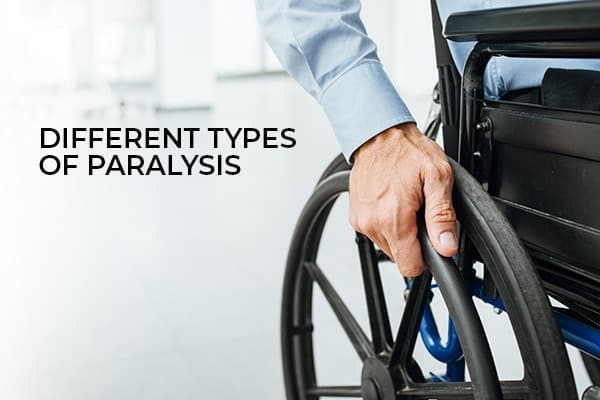
Major accidents can lead to major physical damage. When the accident results in severe brain injury or injury to the spine, the individual may be left paralyzed. The severity of paralysis depends on the accident and what area of the spinal cord was affected. Here is a rundown of the various types of paralysis and what one can expect.
Localized Paralysis and Generalized Paralysis
Localized Paralysis is when a spinal or brain injury causes paralysis to affect a singular part of one’s body, like a face or hand. This type of paralysis can sometimes be worked through with physical therapy, returning limited or full usage of the affected area to the individual.
A Generalized Paralysis is a group of conditions that can affect larger portions or multiple parts of one’s body. For example, generalized paralysis can affect one’s entire arm, rather than just the hand. Here are the different types of general paralysis:
- Monoplegia
- Affects an arm or a leg
- Hemiplegia
- Affects one arm and leg on one side of the body
- Paraplegia
- Affects both of the legs
- Quadriplegia and tetraplegia
- Affects both of your arms and both of your legs
Severity of Paralysis
 The severity of paralysis is separated between two different categories, partial and complete. Partial paralysis means that the individual has some control over the muscles in the affected body part. Complete paralysis means that the individual has lost all ability to control the affected body part.
The severity of paralysis is separated between two different categories, partial and complete. Partial paralysis means that the individual has some control over the muscles in the affected body part. Complete paralysis means that the individual has lost all ability to control the affected body part.
Duration of Paralysis
For some injuries, paralysis may be temporary, and physical therapy can help. For more severe paralysis, a rare few may regain partial control; however, most complete paralysis cases are never fully overcome, depending on the severity and damage to the spinal cord.
What is Flaccid and Splastic?
Flaccid paralysis is a condition in which the muscles of the affected area begin to shrink, due to disuse. This results in the affected area to become weak and constantly relaxed.
Splastic paralysis has the opposite effect. It actually causes one’s muscles to tighten and harden, which can result in uncontrollable twitching due to muscle spasms.
When your paralysis is the result of a serious accident that was caused by the negligence of another, you may be entitled to monetary compensation. Medical bills, lost time at work, and emotional trauma can all result from a serious accident, but you shouldn’t have to face it alone. Contact the experienced attorneys at Branch & Dhillon, P.C. Our lawyers are dedicated to ensuring that you are well taken care of. This is why we offer free, no-obligation consultations as well as a no-win, no-fee contract. Our lawyers also automatically adjust their fees if the case were to be settled outside of court. Call us today and learn why the people of Columbia, SC, turn to Branch & Dhillon, P.C. for all of their personal injury needs.

